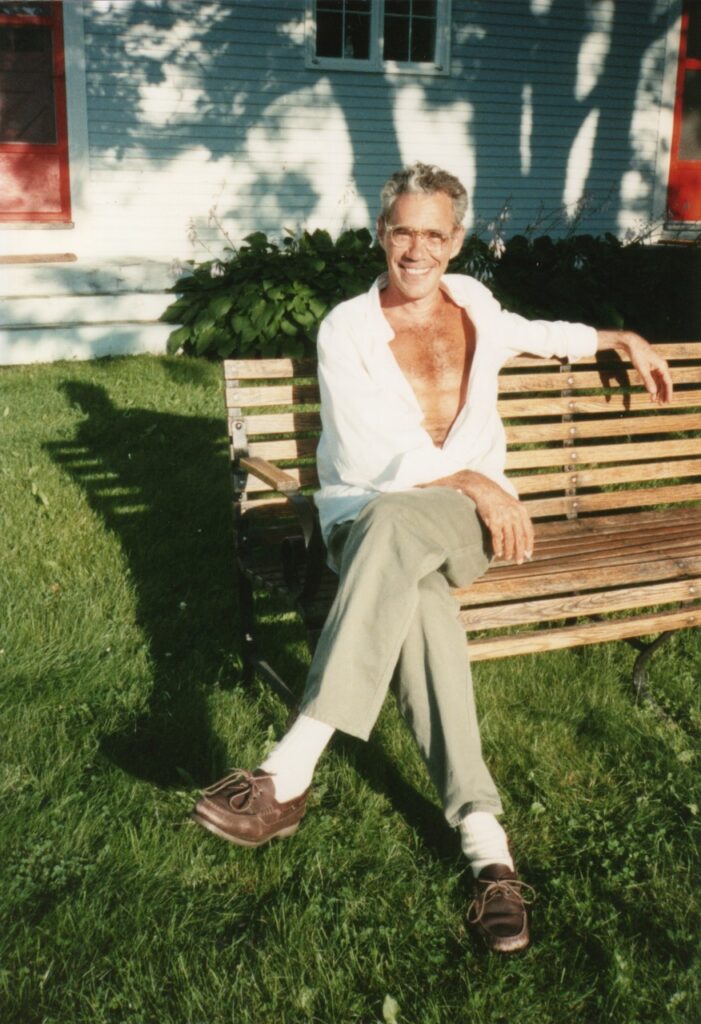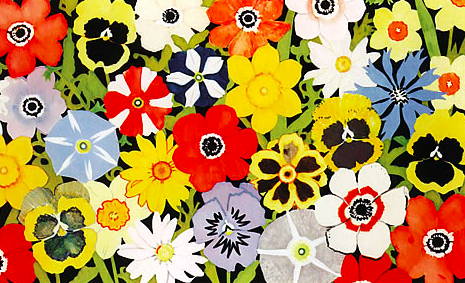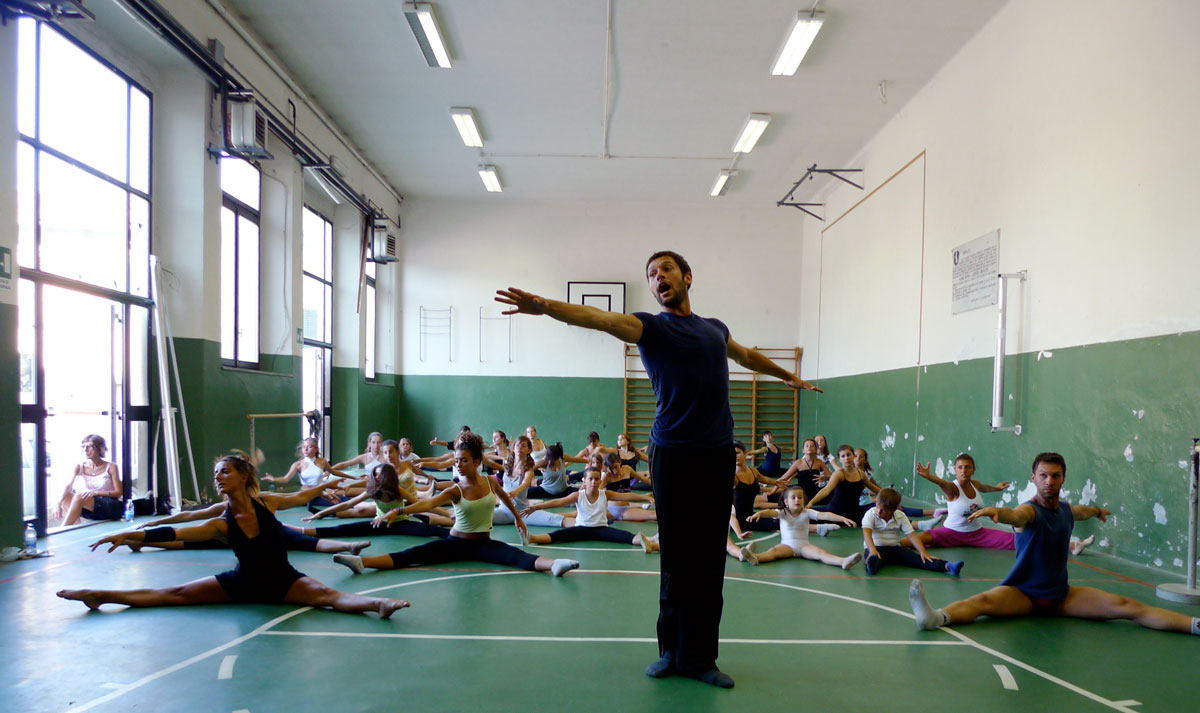This lesson is part of Writing Our Way Through: clear, fun, and engaging “lessons” for writing at home with young people.
Author/Teaching Artist: Matthew Burgess
Age Range: All ages (but especially for 3rd grade and up)
Materials: Papers and pencils/pens
Overview
Inspired by Joe Brainard’s lyrical memoir, I Remember, this is one of the best and most adaptable writing prompts out there. I’ve used it countless times over the years—in poetry classes, undergraduate literature seminars, professional development workshops—and it also works its magic in smaller groups.
The steps are simple and flexible. Basically, you read a selection from Brainard’s book and then invite participants to repeat the phrase “I remember” again and again, each time jotting down the memory that floats up in that moment. The more permission you give, the better. As Brainard’s book demonstrates, no memory is too small or seemingly insignificant. Some might focus on a particular time of life while others take great associative leaps. Younger writers may invent wildly (“I remember riding on the back of a pterodactyl”) while older writers tend to approach this exercise more literally. If someone begins to list the things they don’t remember, that works too.
The Steps:
1. Once everyone is seated and ready with the paper and pencils on hand, I recommend briefly revisiting the concept of a “free write”: when we write freely, we don’t worry about spelling, grammar, or ‘making sense.’ We allow our pencils to move across the page without thinking or censoring what comes up. Our intention is to find the flow of writing and go with it. Fast or slow doesn’t matter, but we try to keep writing for the duration of the free write.
2. If you’re fortunate enough to have a copy of I Remember in your personal library, you can choose your own selection. I’ve collected some “family friendly” excerpts for young writers, but if you’re working with slightly older participants, I suggest allowing your selection to be a bit spicier. Brainard’s candor and daring invites others to venture into similar territory.
3. Read the selection that you’ve chosen aloud. Try to catch the personal, familiar, and conversational rhythm of Brainard’s writing. Once you finish, simply reiterate the instructions: start each line with “I remember…” and see what comes up. Allow your mind to jump from memory to memory, even if it doesn’t seem to make any sense.
4. Set the timer for an agreed upon amount of time (5-7 minutes) with the option of extending if everyone is still in the flow. As usual, everyone writes together.
5. I recommend giving a gentle one-minute warning before concluding. If participants are still writing when the time is up, I often say: “If you’re on a roll, keep going for another minute or two. Otherwise, let yourself read through what you wrote and just notice what came up without judgement.”
6. Invite participants to share one, several, or all of their “I remembers” aloud. Sometimes this exercise can stir up difficult emotions, so passing is always permitted.
7. In conclusion, you might ask participants some of the following questions: What did it feel like to write these lists? What did it feel like to listen to others read their lists aloud? Did you notice anything about which details stood out to you, or which made you feel something?
8. Writing “I remembers” can be a great preliminary exercise for other pieces. Participants can take one or more of their memories and write a poem. Or they can write a prose piece that explores a memory in greater detail. I’ve invited people to write “I remembers” about a close mutual friend and then collaged these together for a birthday present.
Literary Terms, Forms, and Devices: Repetition, “list poems,” anaphora (when consecutive lines begin with the same word or phrase, as in Martin Luther King Jr.’s “I have a dream…” speech.)
Acknowledgments / References: Joe Brainard’s I Remember Granary Books, 2001); “’I Remember’ poems” in Poetry Everywhere, Eds. Jack Collom and Sheryl Noethe (T&W, 2005); “’Glories Strung Like Beads’: The Queer Brilliance of Joe Brainard’s I Remember” by Matthew Burgess in Teachers & Writers Magazine, originally published in 2012/13.

via http://www.joebrainard.org/
Mentor Texts
A selection of excerpts from Joe Brainard’s I Remember:
I remember the only time I saw my mother cry. I was eating apricot pie.
I remember how much I used to stutter.
I remember the first time I saw television. Lucille Ball was taking ballet lessons.
I remember Aunt Cleora who lived in Hollywood. Every year for Christmas she sent my brother and me a joint present of one book.
I remember shower curtains with angel fish on them.
I remember very old people when I was very young. Their houses smelled funny.
I remember daydreams of being a singer all alone on a big stage with no scenary, just one spotlight on me, singing my heart out, and moving my audience to total tears of love and affection.
I remember waking up somewhere once and there was a horse staring me in the face.
I remember saying “thank you” in reply to “thank you” and then the other person doesn’t know what to say.
I remember how embarrassed I was when other children cried.
I remember once on a very hot summer day I put ice cubes in my aquarium and all the fish died.
I remember not understanding why people on the other side of the world didn’t fall off.
I remember getting a car door slammed on my finger once, and how long it took for the pain to come.
I remember having a friend overnight, and lots of giggling after the lights are out. And seemingly long silences followed by “Are you asleep yet” and, sometimes, some pretty serious discussions about God and life.
The banner image is Joe Brainard’s work, “Blossom,” used with permission of the Estate of Joe Brainard and courtesy of Tibor de Nagy Gallery, NY.
Matthew Burgess is an Associate Professor at Brooklyn College. He is the author of eight children's books, most recently The Red Tin Box (Chronicle) and Sylvester’s Letter (ELB). Matthew has edited an anthology of visual art and writing titled Dream Closet: Meditations on Childhood Space (Secretary Press), as well as a collection of essays titled Spellbound: The Art of Teaching Poetry (T&W). More books are forthcoming, including: As Edward Imagined: A Story of Edward Gorey (Knopf, 2024), Words With Wings & Magic Things (Tundra, 2025), and Fireworks (Harper Collins, 2024). A poet-in-residence in New York City public schools since 2001, Matthew serves as a contributing editor of Teachers & Writers Magazine.



